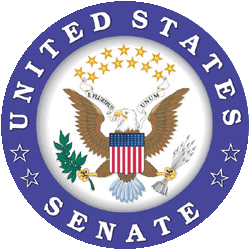WASHINGTON, DC—Today, the Senate passed the 2014 farm bill, which provides $881 million for clean energy projects, supports local jobs across Hawai‘i, extends the sugar program, and combats the destructive impact of the coffee berry borer.
In November 2013, U.S. Senator Brian Schatz (D-Hawai‘i) wrote a letter to Agriculture Committee Chairwoman Debbie Stabenow (D-Mich.) and Ranking Member Thad Cochran (R-Miss.) asking that the farm bill include funds for renewable energy projects and biofuels. Schatz’s priorities were strongly supported in the final version of the bill, which passed the Senate today and is now headed to the President for his signature.
“I’m glad that we were able to pass a bill that not only supports local clean energy projects that will create jobs and save farmers money, but also protects hundreds of local jobs dependent on coffee and sugar production across Hawai‘i, and helps families put fresh food on the table every night,” said U.S. Senator Brian Schatz.
“The farm bill also takes an important step to make sure our kids have fresh, local food in their schools while also supporting local farmers.”
The farm bill addresses some of Hawai‘i most critical agricultural interests including:
- Clean Energy: $881 million for renewable energy, energy efficiency, biofuels, and bio-based products. Certain programs will allow farmers, ranchers, and rural small businesses to access grants and loans to install renewable energy systems on their property.
- Sugar: The Farm Bill includes an extension of the sugar program through 2018, protecting 800 jobs on Maui.
- Coffee: The “Coffee Plant Health Initiative” will provide grants to develop tools and treatments to combat the coffee berry borer, protecting our state’s coffee industry—especially on Hawai‘i Island and Kauai. By managing this pest, we will protect this industry and the thousands of jobs it supports.
- Native Hawaiian Education: The bill reauthorizes an education grant program to Alaska Native and Native Hawaiian-Serving Institutions, totaling $10 million every year for five years.
- Fresh Food in our Schools: Senator Schatz led the effort to include language in the final farm bill that will begin to bring more fresh, local food into our schools through more flexible use of school lunch dollars.
- SNAP funding: The farm bill includes $756 billion in funding for the Supplemental Nutrition Assistance Program (SNAP), formerly known as the food stamp program, which helps struggling families put food on the table. Senator Schatz advocated for provisions in the final bill that will expand access to local, healthy food for low-income families at farmers’ markets and in underserved communities. He also joined his colleagues in fighting back against extreme provisions that would have severely limited access to this important safety net program for millions of low-income families and children.
- Support for Specialty Crops, like Macadamia Nuts: The Specialty Crop Block Grant Program will provide $375 million in funding over five years, which could go towards supporting some of Hawai‘i’s signature specialty crops.
- Greater Assistance for Rural Areas: The bill retains the definition of “rural,” which will allow many communities in Hawai‘i to remain eligible for greater housing assistance, like Ewa Beach, Ewa Gentry, Makakilo, and Kapolei on Oahu, and Wailuku, Kihei, and Lahaina on Maui.
- Conservation: In order to qualify for crop insurance subsidies, farmers must for the first time comply with conservation standards which will protect Hawai‘i’s environment and natural resources.
- Livestock Farmer Protection: The Livestock Forage Program (LFP) provides payments for forage losses due to adverse weather conditions, protecting families from severe drought and other disastrous weather


















